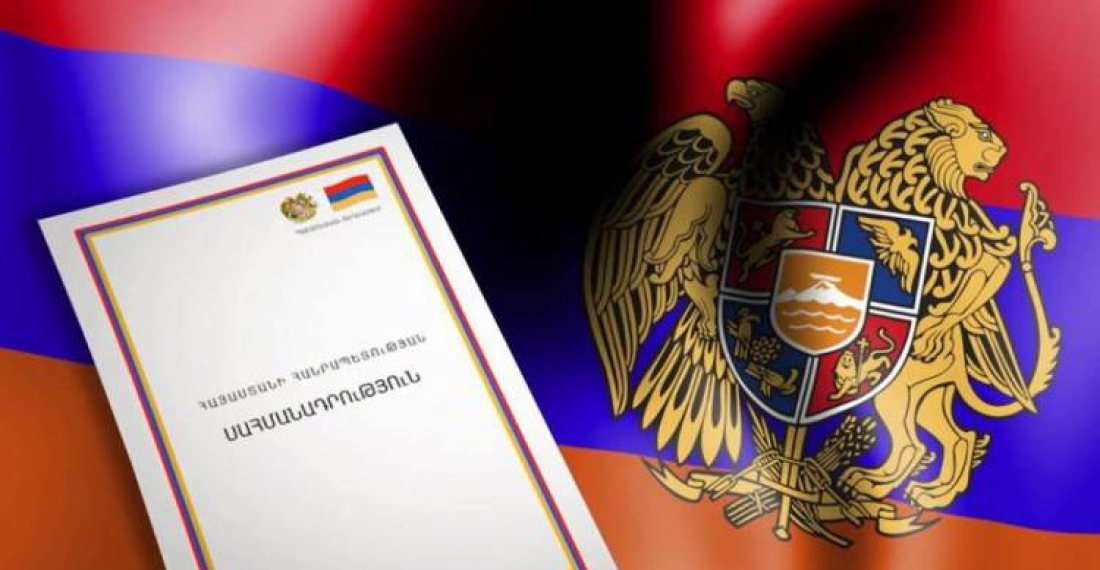Despite progress between Armenia and Azerbaijan over border delimitation and demarcation, another issue threatens to hinder the signing of a long-awaited agreement to normalise relations. Baku now demands that Yerevan first removes from its constitution a controversial preamble referencing the 1990 Declaration of Independence. Based on the 1989 decision on the Reunification of the Armenian SSR and the Mountainous Region of Karabakh, the Armenian government has signalled that the preamble might be removed, but that it does not appreciate being publicly lectured from abroad to do so.
In response, Azerbaijan counters that as the preamble effectively lays claim to part of its internationally recognised territory it is not simply an internal matter.
This issue is not new, but until this point, its removal had not been a precondition for signing a peace deal. The timing has also taken some aback coming as it does during ongoing protests against Armenian Prime Minister Nikol Pashinyan in Yerevan. Changing the constitution is already problematic enough given that other controversial changes such as removing various problematic symbols on official emblems are possibly slated too. It also forms part of Pashinyan’s stated objective to transform the country away from what he considers to be a revanchist Historical Armenia to more conciliatory and contemporary Real Armenia.
Baku views the issue of constitutional amendments solely in a post-conflict paradigm, even though Pashinyan has wanted to make them ever since coming to power after the 2018 Velvet Revolution. Though at that time not envisaging the changes mentioned above, adopting a new constitution was anyway logical after removing the previous regime and rejecting all of its largely negative hallmarks. Georgia did the same after its 2003 Rose Revolution.
Only the pandemic and 44-day-war in 2020, as well as snap elections in 2021, prevented him from doing so and there is so far no reason to believe anything has changed in his intent. There might now be even more reason to do so, not only as part of efforts to normalise relations with Azerbaijan and Türkiye, but also in order to move his premiership forwards. The opposition also credibly charges that it is the only way to guarantee his political survival and absolve himself of any blame for the 44-day-war by symbolically moving from a third republic to a fourth.
The real question now is whether it is even possible to hold a constitutional referendum when most of the electorate remains politically disengaged? Last year’s municipal vote in the capital demonstrated that turnout for elections is at an all-time low. This makes the recent demand from Baku even more unfortunate, especially when the opposition claims that Pashinyan is simply being dictated to. It also comes as Baku raises the issue of the 1992 massacre in Khojaly and the dissolution of the OSCE Minsk Group, adding to Pashinyan’s already considerable duress.
Moreover, by prematurely forcing constitutional amendments on an unprepared or even disinterested electorate, such a referendum could be doomed from the outset if it is held with insufficient voter turnout. That has happened before.
While observing the 2005 constitutional referendum, like many colleagues who privately shared their experience, I remember empty polling stations across the electoral district I was assigned. In one polling station in Artashat, the fiefdom of then-government minister Hovik Abrahamyan, members of the entire Precinct Election Commission (PEC) were even absent from their desks because there were no voters. We eventually found them feasting on khorovats (barbecue) in an isolated back room. After all, the number of votes was anyway going to be made up later.
But those days of falsifying the count are now hopefully a thing of the past.
Instead, there needs to be a calmer political environment and a healthy public discussion must be encouraged. To chance the importance and necessity of a peace agreement otherwise seems particularly irresponsible. It is unclear whether Aliyev will stick to his demand or if it is simply a last-minute bargaining chip, but the population must also buy into the substance of any new constitution.
However, Azerbaijani MP Rasim Musabekov recently pointed out that any agreement to normalise relations will still need to be ratified by the parliaments of both countries. Though it might bring back unfortunate memories of 2009 when the Armenia-Turkiye protocols were left unratified and eventually withdrawn, that could be a solution to the current constitutional impasse. Even an agreement signed by Armenia and Azerbaijan would at least represent something symbolic for the populations of both countries and map out the work that needs to be done.
Ratification could then occur at such a time when the situation was more conducive to a popular vote. But even then, nothing should be left to chance.
Armenia will go to parliamentary elections no later than the middle of 2026. Holding a referendum in parallel with that vote would at least guarantee a higher voter turnout than one held on its own. It would also allow time to improve Armenia-Azerbaijan relations and implement much-needed confidence-building measures simultaneously. Chancing a peace agreement on a premature referendum instead sounds like a somewhat risky and potentially reckless endeavour.
source: Onnik James Krikorian is a journalist, photojournalist, and consultant from the U.K. who has covered the Armenia-Azerbaijan conflict since 1994.
photo: The Armenian Constitution
The views expressed in opinion pieces and commentaries do not necessarily reflect the position of commonspace.eu or its partners







